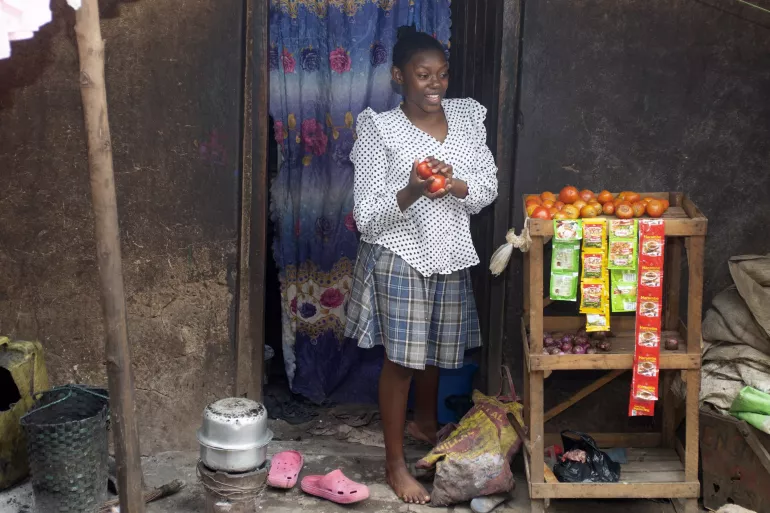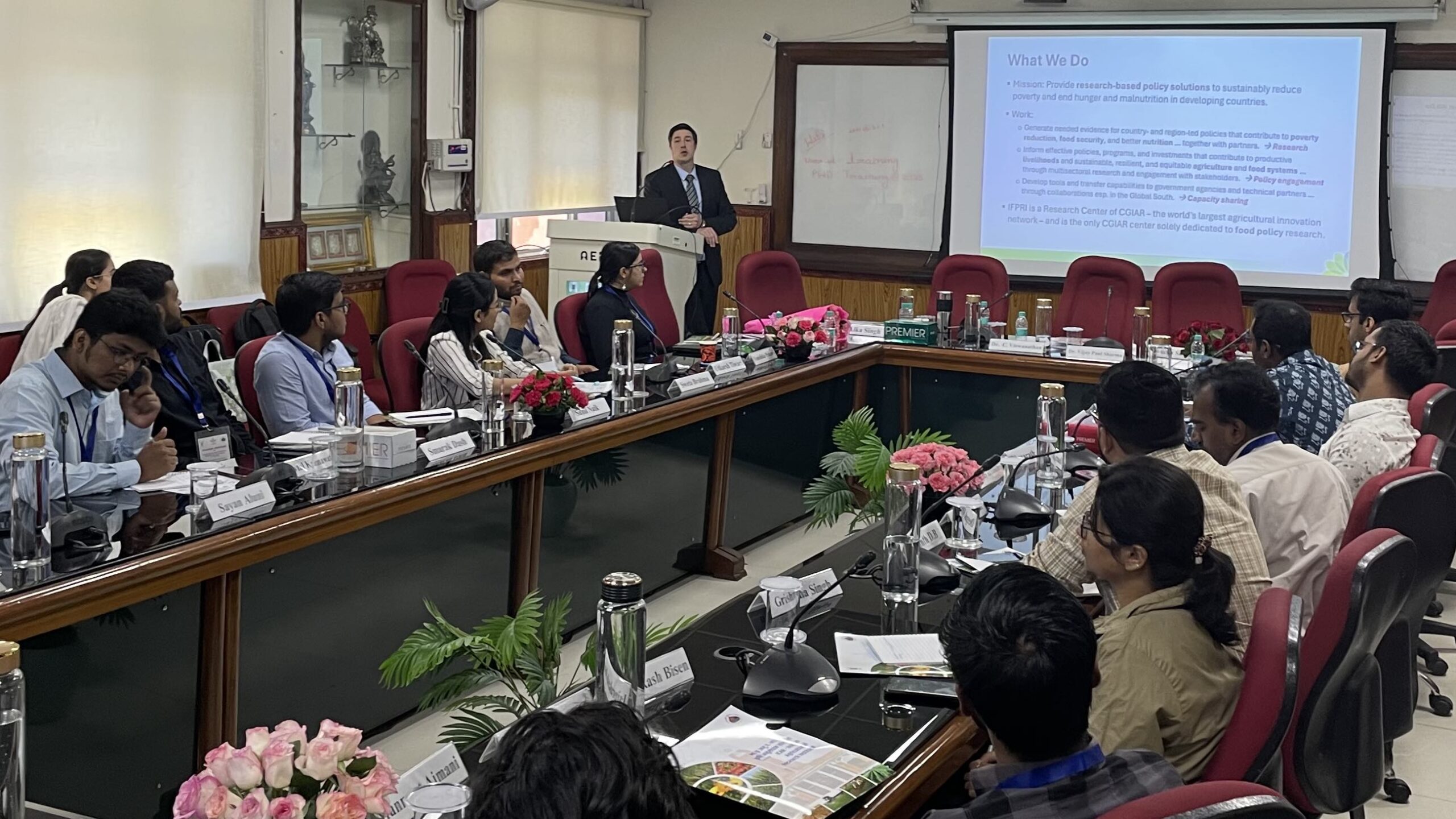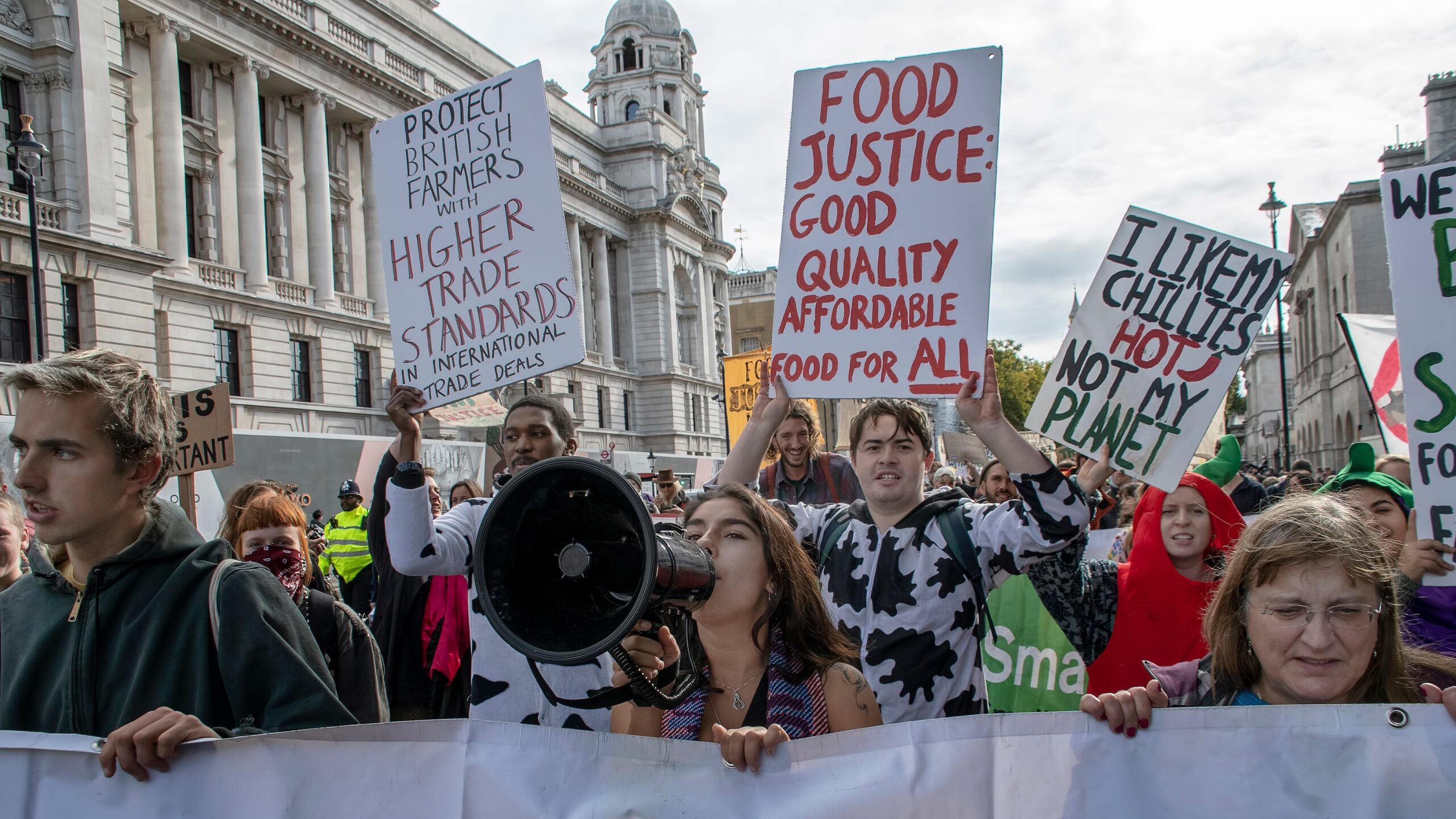Air pollution, rising temperatures, crop failures, and water shortages are increasing pressures on health and agrifood systems. During these crises, households often reduce food consumption, sell assets, migrate or adjust labor allocation between men and women. Women and children are at greater risk of food insecurity due to lower access to and control of productive resources, services, household decision-making, income allocation, and perceived expendability.
Climate shocks affect women and girls more
Female-headed households lose 8% more income due to heat stress and 3% more due to floods. This causes lower off-farm income and significant reductions in livestock holdings and agricultural expenditures. Women do not have an adequate level of education, have limited access to infrastructure and markets, and perform the biggest share of unpaid care and support work. Resource constraints can limit women’s non-agricultural employment prospects, their ability to adapt and increase their vulnerability. Moderate or severe food insecurity among adult women rose from 27.5% in 2019 to 31.9% in 2021.
Children, especially girls, experience similar hardships. Altered rainfall patterns have led to girls spending more time fetching wood and water over longer distances and taking on additional domestic labor, leading to increased exposure to violence and a higher likelihood of missing school. Adolescent girls are more likely to be forced to marry to alleviate financial difficulties caused by extreme weather events. Climate-related displacement also places pressures on social and health services such as menstrual hygiene and sexual and reproductive health.
Overcoming structural gender inequalities and barriers is fundamental for climate-resilient development. Inclusive and gender-responsive social protection and agrifood systems can provide access to resources, services, and economic opportunities for women and girls to build their resilience in the face of climate change.
Under a worst-case climate scenario, up to 158.3 million more women and girls could be pushed into poverty by mid-century, exceeding the number of men and boys by at least 16 million.
Adaptive and gender-responsive social protection systems
Long-term investments in social protection systems and short-term adaptations can help women and girls reduce their vulnerability to climate or economic shocks. Some adaptations measures include:
- Cash and in-kind assistance alongside livelihood diversification.
- Connections to early warning systems and anticipatory action.
- Linkages for women and girls to access to social services, including health insurance.
Social assistance helps households meet their basic needs and improve their coping responses. This facilitates the uptake of climate-adaptive practices and reduces the need for maladaptive actions like child marriage that often disproportionately harm women and girls.
Combining social protection instruments such as labor market policies with agriculture skills development and climate insurance can support the delivery of adaptation measures and help address inequalities women and girls may face in the green transition. This is possible only when adaptation measures are gender-responsive and age-sensitive, thus not increasing women’s and girls’ time burden or reinforcing households’ discriminatory divisions of labor.
It has been demonstrated that investments that improve access to social protection and decrease poverty can considerably reduce overall climate risk for 310 million children. For this reason, UNICEF, with support from the German Federal Ministry for Economic Cooperation and Development (BMZ) has initiated a 5-year evidence-collection process through the project ASPECT (Adaptive Social Protection: Evidence for Child Outcomes) in fragile settings. Focused on fragile contexts, this project aims to generate evidence on the contributions of adaptive social protection in building the resilience of households to climate-related and other shocks for achieving better outcomes for children and their families.
Inclusive and gender-responsive agrifood systems
Agrifood systems represent a pivotal source of livelihood and are a major employer for women globally. In South Asia, 71% of women work in agrifood systems, compared to 47% of men. Projections suggest that if half the small-scale producers benefited from women’s empowerment within agrifood systems, the incomes of an additional 58 million people and the resilience of 235 million people could be enhanced.
Evidence has shown that gender-responsive interventions in agrifood systems are successful in strengthening resilience through:
- Community-based approaches.
- Policy engagement.
- Increased access for women to essential resources.
- Services and social protection.
Community-based approaches foster capacity development tailored to women’s needs and enhance access to information, resources, finance, and collective agency.
Access to financial and advisory services can help build resilience; digitalization can further address mobility constraints and improve financial autonomy. For instance, IFAD’s (International Fund for Agricultural Development) Adaptation for Smallholder Agriculture Programme (ASAP+) has introduced sustainable technologies for gender-sensitive, climate-resilient agricultural practices while ensuring that women and girls constitute at least 50% of the beneficiaries. Through these efforts, IFAD helps break down barriers that prevent women from realizing their full potential in rural societies.
Five ways to adaptation
Climate financing should be directed towards inclusive agrifood and social protection systems by adopting an integrated approach, and formulating gender-responsive and transformative innovations that are locally informed and tailored to the needs and preferences of women and adolescent girls.
We call on policymakers, multilateral donors, and international organizations to:
- Adopt and finance inclusive, gender-transformative, and adaptive social protection and agrifood systems for building the climate resilience of women, girls, and other at-risk groups.
- Ensure agrifood and social protection systems are designed with an inclusive gender, age, and disability lens to capture the needs of those facing specific risks due to social and economic vulnerabilities and exclusion.
- Improve women’s and girls’ access to these systems to equip them with natural and productive resources, services, employment opportunities, social assistance and insurance.
- Collect, analyze and disseminate data disaggregated by gender, age and other social characteristics to generate evidence for guiding inclusive policies and investments related to climate adaptation, mitigation, and resilience building.
- Support gender-responsive budgeting for climate action to ensure adequate financial resources are allocated towards gender equality, including the empowerment of women and girls.
Clara Ceravolo is Social Protection and Gender Consultant, UNICEF; Ilaria Sisto is Gender and Development Officer, UN Food and Agriculture Organization (FAO); Lauren Whitehead is Social Protection and Gender Lead, UNICEF; Matthew Walsham is Social Protection Specialist (Climate), FAO; Morane Verhoeven is Gender and Social Inclusion Consultant, IFAD; Shalini Roy is a Senior Research Fellow with IFPRI’s Poverty, Gender, and Inclusion Unit. Opinions are the authors’.
This post first appeared on the UNICEF blog.







